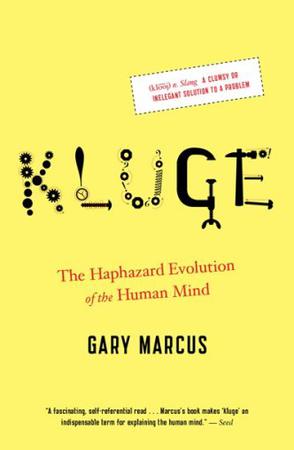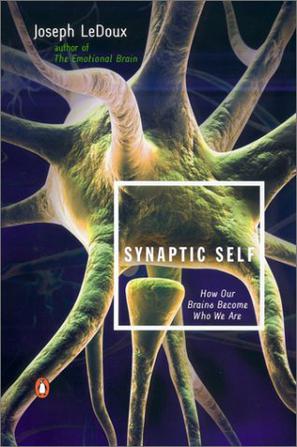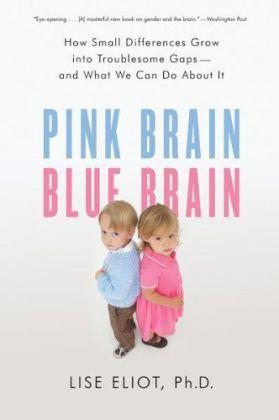-

人因工程学导论
人因学作为一门新兴的学科,在当今工业设计领域越来越受重视,这本《人因工程学导论》的主要意图是对人因学原理进行清楚直观的说明。本书作者之一,美国伊利诺伊大学的威肯斯教授是人因学、工程心理学界的泰斗级人物,他从众多的人因工程学研究中总结出有关人类在体力和脑力劳动中的工作能力和局限性的知识,供如今的系统工程师、设计师作参考,以进行更好的系统设计,更有效的用户培训,更客观的系统可用性评价。希望通过本书的出版,能让更多的中国人了解,重视人因学。 -

Forty Studies That Changed Psychology
This unique book closes the gap between psychology books and the research that made them possible. Its journey through the “headline history” of psychology presents 40 of the most famous studies in the history of the science, and subsequent follow-up studies that expanded their findings and relevance. Readers are granted a valuable insider's look at the studies that continue to be cited most frequently, stirred up the most controversy when they were published, sparked the most subsequent related research, opened new fields of psychological exploration, and changed most dramatically our knowledge of human behavior. For individuals with an interest in an introduction to psychology. -

Kluge
How is it that we can recognize photos from our high school yearbook decades later, but cannot remember what we ate for breakfast yesterday? And why are we inclined to buy more cans of soup if the sign says "LIMIT 12 PER CUSTOMER" rather than "LIMIT 4 PER CUSTOMER?" In "Kluge, "Gary Marcus argues convincingly that our minds are not as elegantly designed as we may believe. The imperfections result from a haphazard evolutionary process that often proceeds by piling new systems on top of old ones--and those systems don't always work well together. The end product is a "kluge," a clumsy, cobbled-together contraption. Taking us on a tour of the essential areas of human experience--memory, belief, decision making, language, and happiness--Marcus unveils a fundamentally new way of looking at the evolution of the human mind and simultaneously sheds light on some of the most mysterious aspects of human nature. -

Psychology
Weiten's PSYCHOLOGY: THEMES AND VARIATIONS, 8E International Edition maintains this book's strengths while addressing market changes with new learning objectives, a complete updating, and a fresh new design. The text continues to provide a unique survey of psychology that meets three goals: to demonstrate the unity and diversity of psychology's subject matter, to illuminate the research process and its link to application, and to make the text challenging and thought-provoking yet easy from which to learn. Weiten accomplishes the successful balance of scientific rigor and a student-friendly approach through the integration of seven unifying themes, an unparalleled didactic art program, real-life examples, and a streamlined set of learning aids that help students see beyond research to big-picture concepts. Major topics typically covered in today's courses are included, such as evolutionary psychology, neuropsychology, biological psychology, positive psychology, applied psychology, careers, and multiculturalism and diversity. -

Synaptic Self
Amazon.com A middle-aged neuroscientist walking down Bourbon Street spots a T-shirt that reads, "I don't know, so maybe I'm not." This stimulus zooms from eyes to brain, neuron by neuron, via tiny junctions called synapses. The results? An immediate chuckle and (sometime later) a groundbreaking book titled The Synaptic Self. To Joseph LeDoux, the simple question, "What makes us who we are?" represents the driving force behind his 20-plus years of research into the cognitive, emotional, and motivational functions of the brain. LeDoux believes the answer rests in the synapses, key players in the brain's intricately designed communication system. In other words, the pathways by which a person's "hardwired" responses (nature) mesh with his or her unique life experiences (nurture) determine that person's individuality. Here, LeDoux nimbly compresses centuries of philosophy, psychology, and biology into an amazingly clear picture of humanity's journey toward understanding the self. Equally readable is his comprehensive science lesson, where detailed circuit speak reads like an absorbing--yet often humorous--mystery novel. Skillfully presenting research studies and findings alongside their various implications, LeDoux makes a solid case for accepting a synaptic explanation of existence and provides to the reader generous helpings of knowledge, amusement, and awe along the way. --Liane Thomas --This text refers to an out of print or unavailable edition of this title. From Publishers Weekly Despite ongoing debate about the root cause of psychological disorders, most agree that the development of the self is central to the distinction between normality and psychopathology. Yet neuroscientists have been slow to probe the biological basis for our sense of self, focusing instead on states of consciousness. LeDoux (The Emotional Brain), professor at New York University's Center for Neural Sciences, has come up with a theory: it's the neural pathways the synaptic relationships in our brains that make us who we are. Starting with a description of basic neural anatomy (including how neurons communicate, the brain's embryological development and some of the key neural pathways), LeDoux reviews experiments and research, arguing that the brain's synaptic connections provide the biological base for memory, which makes possible the sense of continuity and permanence fundamental to a "normal" conception of self. Writing for a general audience, he succeeds in making his subject accessible to the dedicated nonspecialist. He offers absorbing descriptions of some of the most fascinating case studies in his field, provides insight into the shortcomings of psychopharmacology and suggests new directions for research on the biology of mental illness. While some may disagree with LeDoux's conclusion that "the brain makes the self" through its synapses, he makes an important contribution to the literature on the relationship between these two entities. Agents, Katinka Matson and John Brockman. (On-sale: Jan. 14) Copyright 2001 Cahners Business Information, Inc. --This text refers to an out of print or unavailable edition of this title. -

Pink Brain, Blue Brain
In the past decade, we've heard a lot about the innate differences between males and females. So we've come to accept that boys can't focus in a classroom and girls are obsessed with relationships: "That's just the way they're built.""" In "Pink Brain Blue Brain," neuroscientist Lise Eliot turns that thinking on its head. Calling on years of exhaustive research and her own work in the field of neuroplasticity, Eliot argues that infant brains are so malleable that small differences at birth become amplified over time, as parents and teachers--and the culture at large--unwittingly reinforce gender stereotypes. Children themselves exacerbate the differences by playing to their modest strengths. They constantly exercise those "ball-throwing" or "doll-cuddling" circuits, rarely straying from their comfort zones. But this, says Eliot, is just what they need to do. And she offers parents and teachers concrete ways to help. Presenting the latest science from birth to puberty, she zeroes in on the precise differences between boys and girls, erasing harmful stereotypes. Boys are not, in fact, "better at math" but at certain kinds of spatial reasoning. Girls are not naturally more empathetic; they're allowed to express their feelings. By appreciating "how" sex differences emerge--rather than assuming them to be fixed biological facts--we can help all children reach their fullest potential, close the troubling gaps between boys and girls, and ultimately end the gender wars that currently divide us.